Alexis Harding
Long Room Drying Depot
26 October - 24 November 2012
Alexis Harding’s paintings are full of drama. These works are not the result of meticulous planning but created by a chemical mismatch of material causing what appears to be a traumatic event on the brink of collapse. Based on the premise that artist’s oil paint is not a good subsurface for household gloss paint Harding works with the interplay of these two substances allowing the paint to acquire its own life and logic. The resulting paintings, with a little constructive help from the artist, blur the boundary between accident and intent.
The starting point for these works is a panel of wet oil paint. Then either a grid or a graduated spectrum of gloss paint is poured through a partitioned container, which is moved across the wet surface. As the gloss paints dries, it slips slowly across its substrata, wrinkling and sagging as it falls. A shadowy trail of paint marks the journey. The transformation produced by this chemical imbalance is central to the work but sub themes of failure, possibility and time also emerge.
There is no instant result. The process itself takes months rather than days. The paint shrivels, puckers, tears and in extreme cases rips open causing large spillages and at times the entire surface falls off. The physical process is about waiting and drying and the artist’s work is one of observation and correction. In some of these paintings the artist has encouraged the physical process and pushed the skins to form greater folds and peaks, playing with the chemistry and flirting with the imagery.
“ I use the ordinary language of abstraction and aim to fundamentally change it; to harness it and stretch it to breaking point. To do this I have had to change the way paint normally behaves and functions. The way I make the work is a combination of strategy and control and irrationality and abandonment. Pictorialism has been an unexpected residue of the very direct collision of materials I use to make these paintings. I want to manipulate the core ingredients of painting, their dumb attributes, through a type of subjective filter- to see an urban entropic image come out the other end
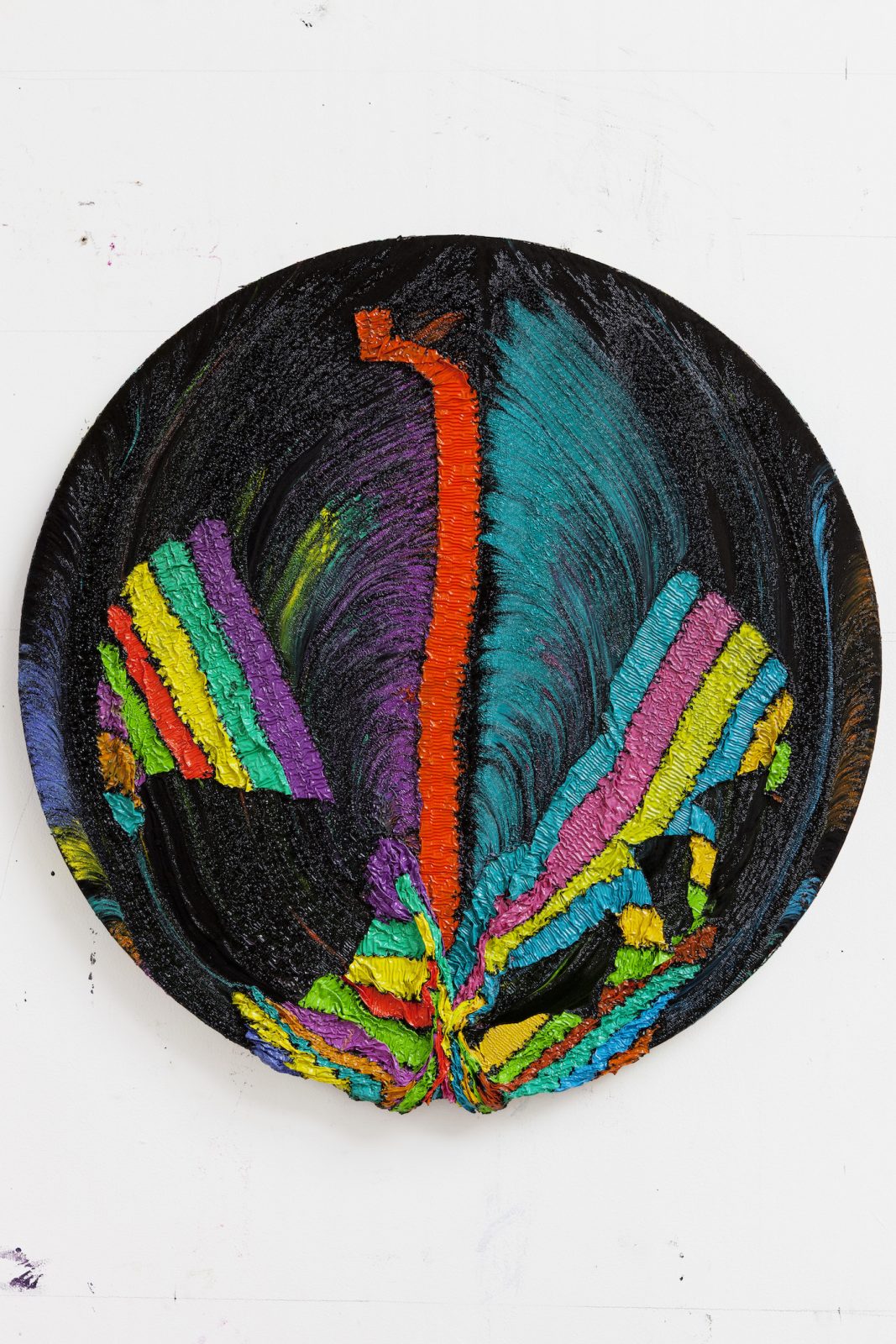
Oil and gloss paint on MDF
50 cm diameter
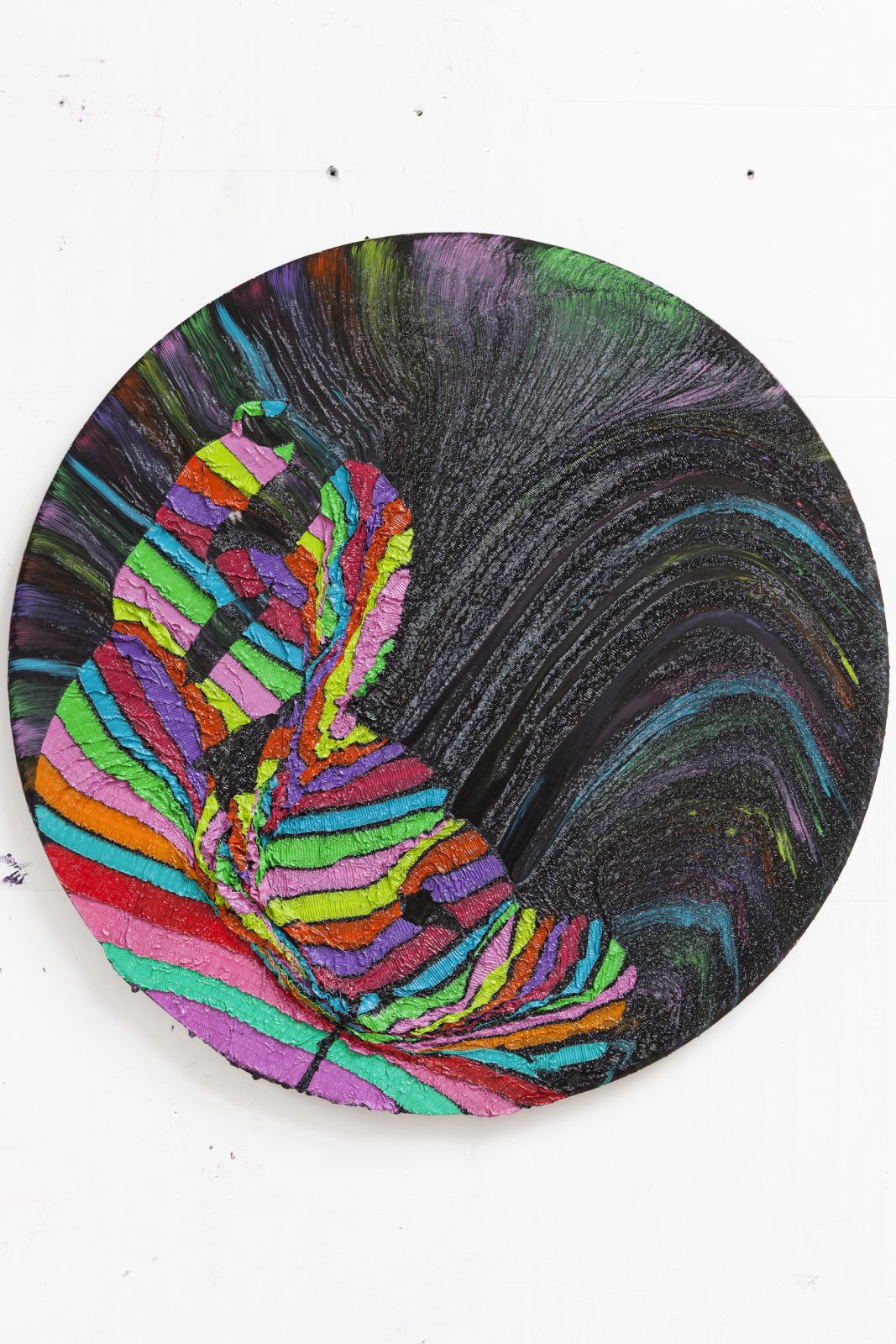
Oil and gloss paint on MDF
each panel 75cm diameter
Triptych
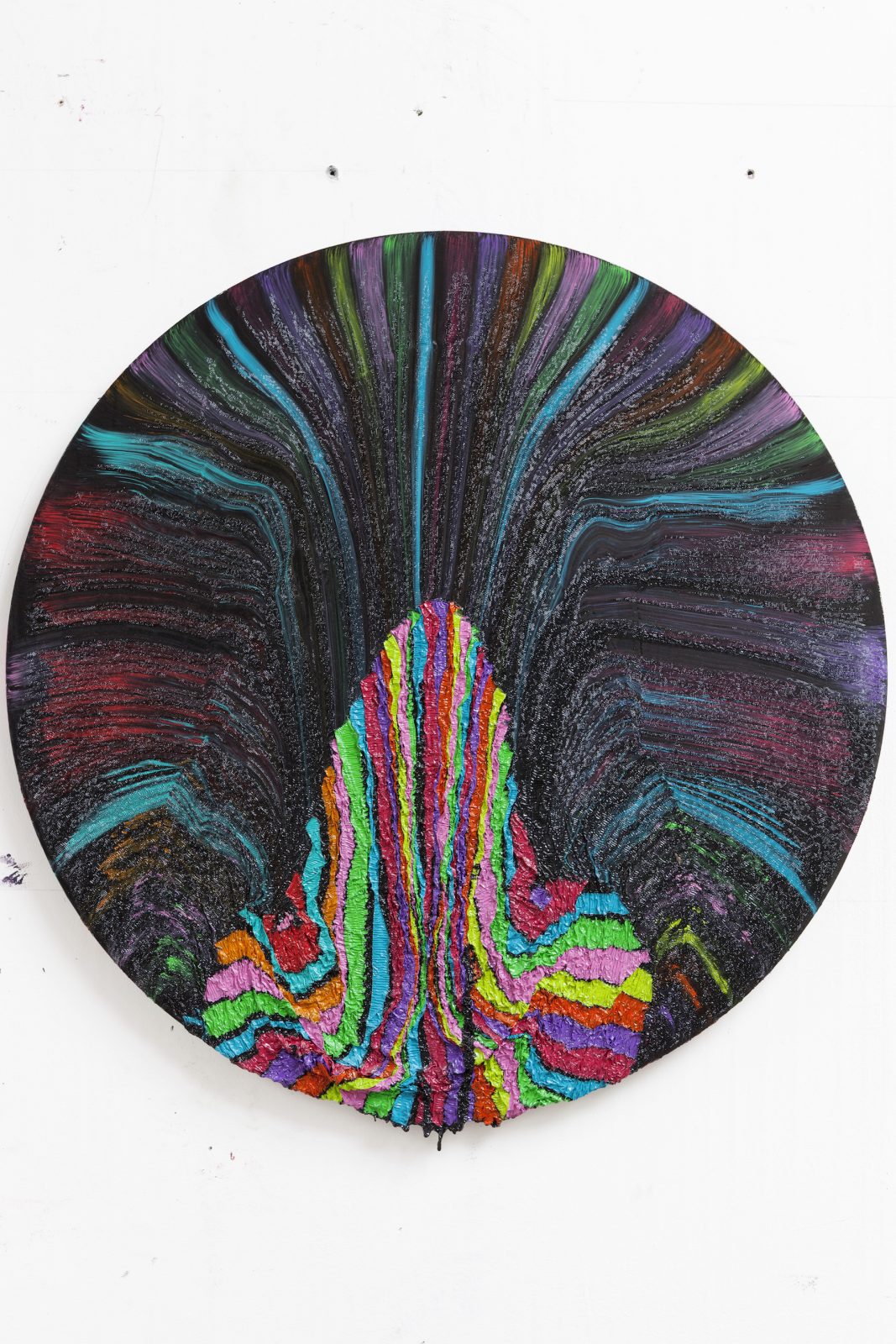
Oil and gloss paint on MDF
each panel 75cm diameter Triptych
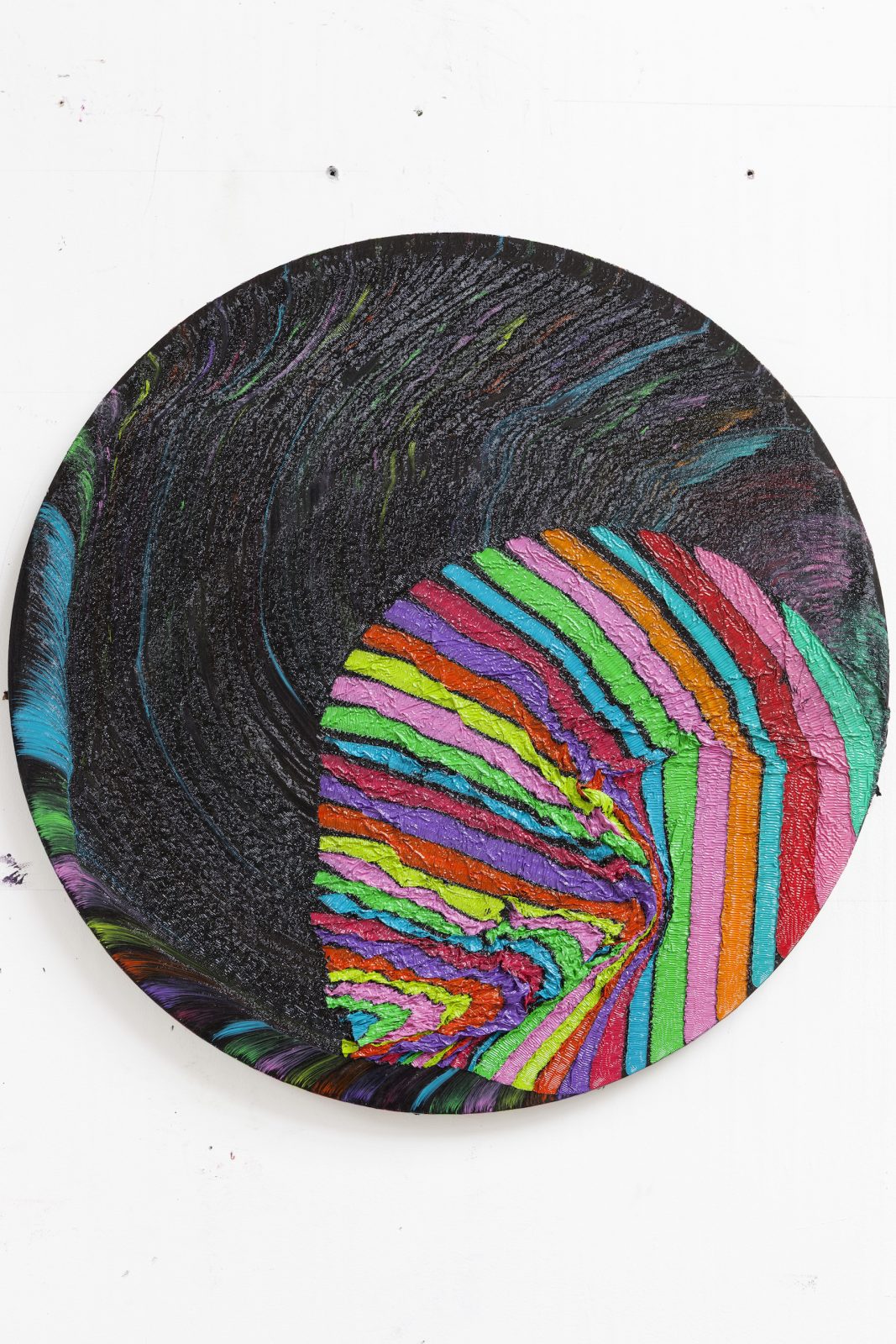
Oil and gloss paint on MDF
each panel 75cm diameter
Triptych
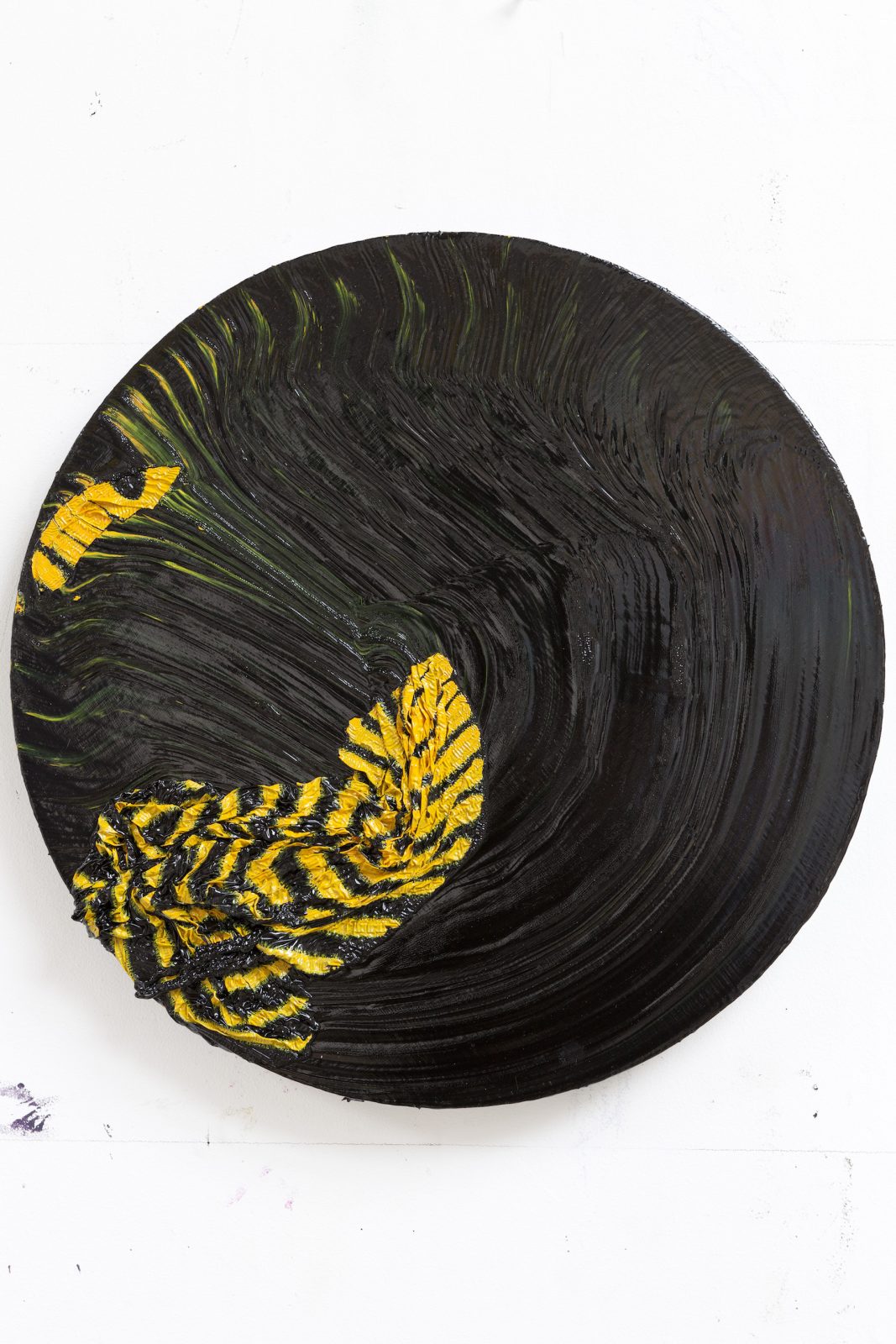
Oil and gloss paint on MDF
35 cm diameter